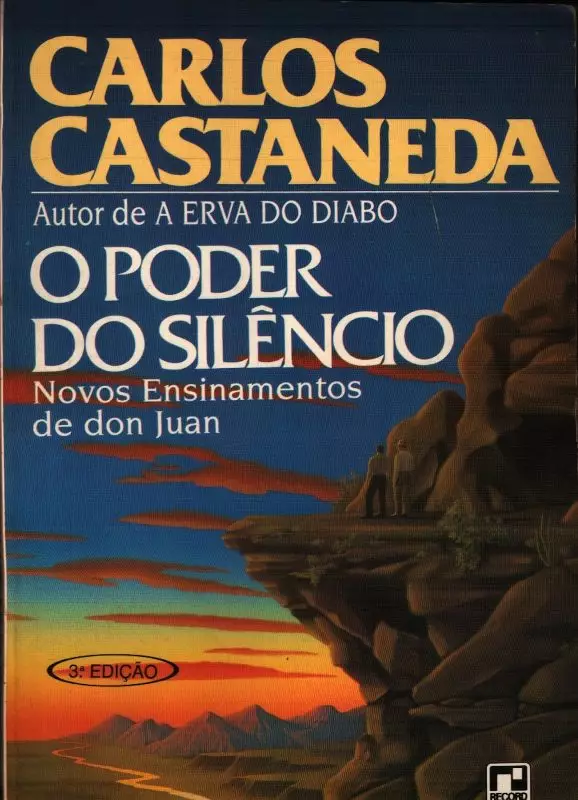There are two questions that we would like to address ourselves to in this issue. The first is:
“When am I going to see? I have been doing Tensegrity steadily, and I have been recapitulating as much as I can. What’s next?“
To see energy as it flows in the universe has been the primary goal of sorcerers since the beginning of their quest. For thousands of years, according to don Juan, warriors have endeavored to break the effect of our interpretation system and be able to perceive energy directly. In order to accomplish this, they developed, over the millennia, very exigent steps. We don’t want to call them “praxes” or “procedures,” but rather, “maneuvers.” The warriors’ way, in this sense, is a sustained maneuver designed to buttress warriors so they might fulfill the goal of seeing energy directly.
As the various premises of the warriors’ way are discussed in each issue of this journal in the section called The Warriors’ Way Viewed as a Philosophical-Practical Paradigm, it will become obvious that the sorcerers’ efforts have been and are directed at obliterating the predominance of self-importance, as the only means to suspend the effects of our interpretation system. Sorcerers have a description of suspending that effect; they call it stopping the world. When they reach this state, they see energy directly.
The reason don Juan advised refraining from focusing on praxes and procedures is because, along with doing Tensegrity or recapitulating or following the warriors’ path, practitioners must intend their change; they must intend stopping the world. So, it is not merely following the steps that counts; what is of supreme importance is intending the effect of following the steps.
“Are you doing something to me through Tensegrity? Today, I felt something moving on my back and I am afraid. I have stopped doing Tensegrity until you clarify this point.“
It has been our experience that the most rational people, such as lawyers, for instance, or psychologists, have asked this type of question. Some years ago, Florinda Donner-Grau made the following statement in Spanish to one of her friends, a very serious, cultured woman: “Eres tan linda que te queremos robar.” “You are so darling that we want to steal you.” In Spanish, this locution is thoroughly correct as an expression of endearment.
Florinda did not see her friend until a year later, when she announced to Florinda that she had to see her on her psychiatrist’s advice. She wanted to confront Florinda and her cohorts, after a year of analysis spurred by obsessive, recurring dreams in which an inhuman force was trying to take her away from her family and her close friends. In her mind, that inhuman force was, of course, Florinda Donner Grau and her cohorts.
Nothing of this is new to us. Every one of us has had the same feelings and asked the same question to don Juan Matus in varying degrees of coarseness. We all felt something moving on our backs. Don Juan said that it was a thankful muscle which had been fed with oxygen for the first time ever, after we had done the magical passes. He assured every one of us, self-important complainers, that he needed us as he needed a hole in the head. He reminded us that he had daily appointments with the infinite; appointments that he had to attend in a state of profound ease and purity, and that influencing others was not in any way part of that needed ease and purity. He pointed out to us that the idea that we were being manipulated by some evil force that had us by the neck, like guinea pigs, was a product of our lifetime habit of relishing being victims. He used to chide us in a mocking tone of despair, “He’s doing it to me, and I can’t help myself.”
Don Juan’s recommendation to us, regarding our fears of being unduly influenced, was a sort of parody of the political turmoil of the sixties, when the following statement was an axiom of the political activists of the time: “In case of doubt, burn.” Don Juan modified it to: “In case of doubt, be impeccable.”
Nowadays, we understand don Juan’s position when he said, “It is inconceivable to fulfill, loaded with misgivings, misconceptions and wrongdoings, the true goal of sorcery: a journey to infinity.”
When we hear our old complaints voiced by someone else, our act of impeccability is to assure the complainer that we are in search of freedom and that freedom is free; free in the sense that it is gratis and free in the sense of not having the staggering grip of unwarranted and obsessive self-importance.
(Carlos Castaneda, Journal of Applied Hermeneutics)

